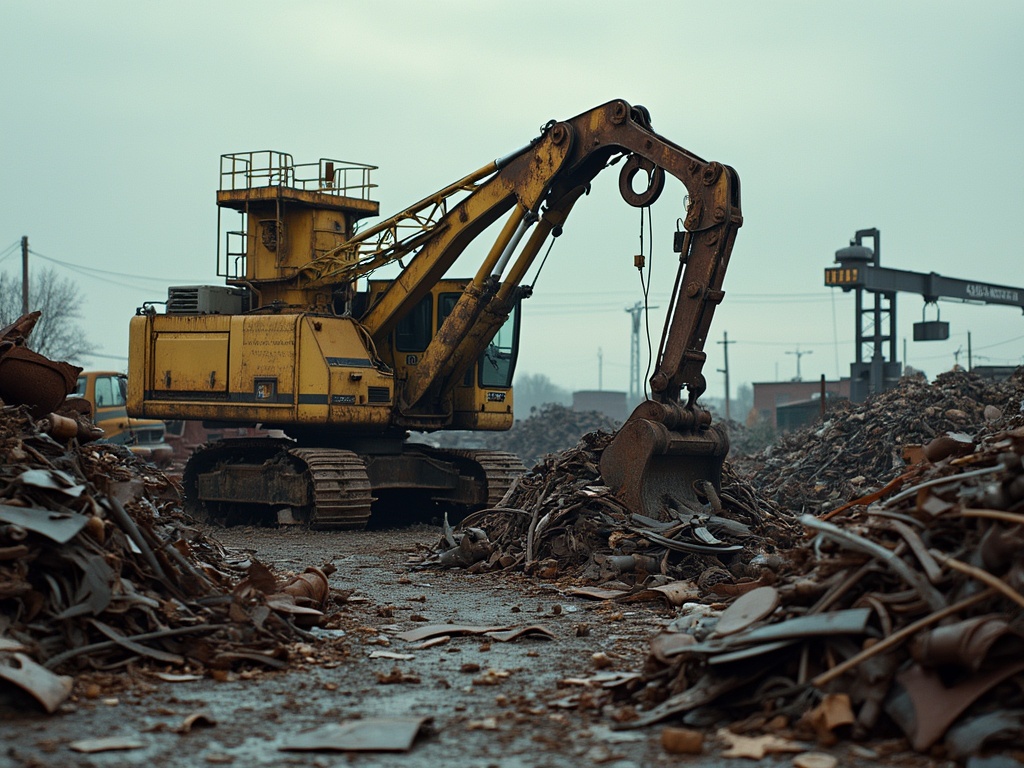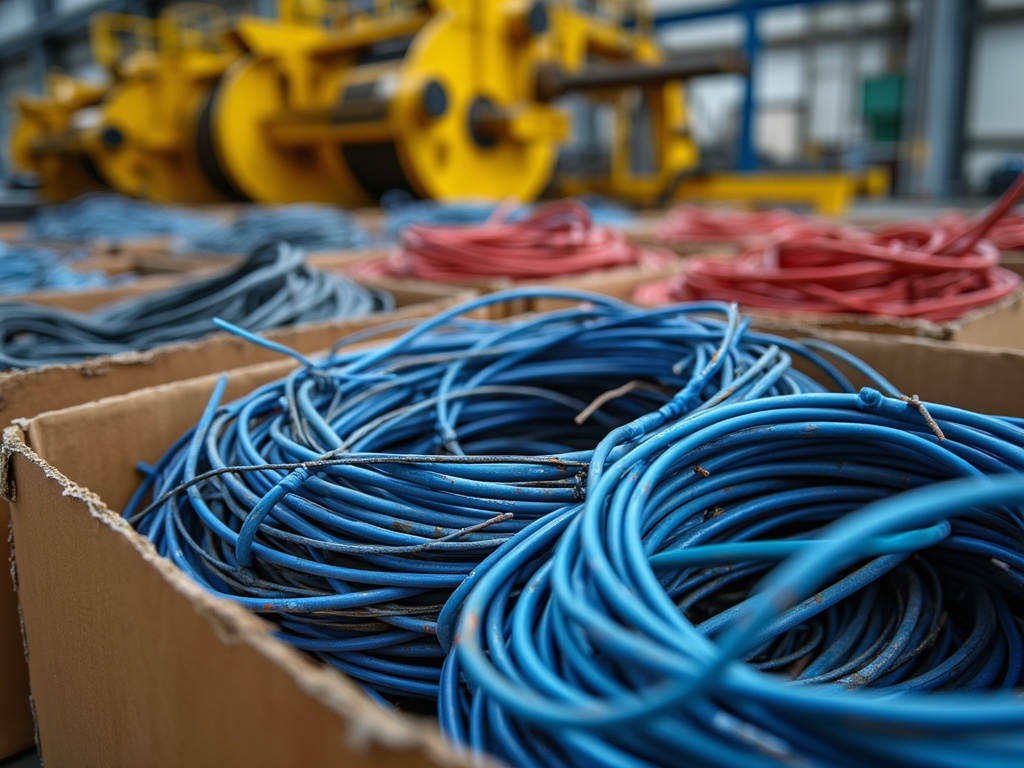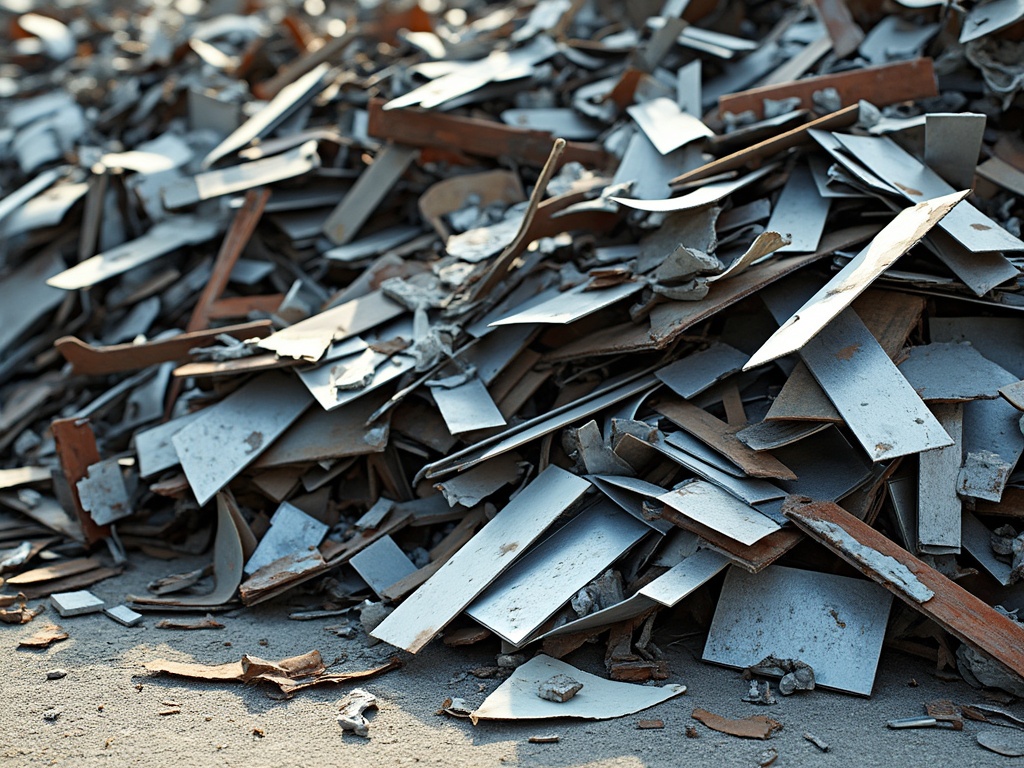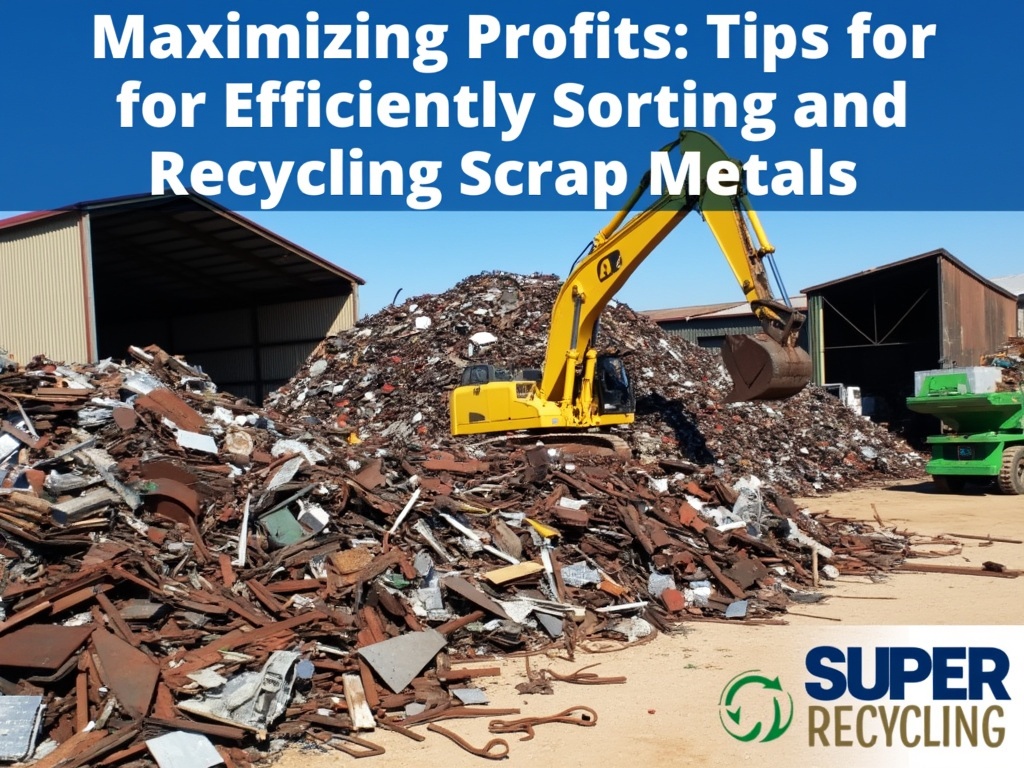Recycling scrap metal isn’t just good for the planet; it can also be a lucrative business opportunity. With the global scrap metal recycling market projected to reach $87.45 billion by 2031, entrepreneurs are tapping into this growing industry to turn trash into treasure.
This article explores top strategies for maximizing profits from scrap metal recycling. Whether you’re a seasoned recycler or just starting, these tips will help you focus on the most valuable metals and optimize your operations for success.
From identifying high-value materials to understanding price fluctuations, we cover essential knowledge to give you an edge in this competitive field. You’ll learn how to efficiently collect, sort, and process scrap for the best returns. We’ll also discuss building relationships with suppliers and buyers to create a sustainable business model.
By the end, you’ll have a roadmap for turning scrap metal into a profitable venture while contributing to a more sustainable future. Let’s uncover the secrets to making money in the world of scrap metal recycling!
Main takeaways:
- Learn which metals offer the highest profit potential
- Understand how to capitalize on market trends
- Discover efficient methods for collecting and processing scrap
- Explore strategies for building a successful recycling business
Identifying High-Value Metals
Scrap metal recycling involves focusing on high-value metals to maximize earnings. Copper, brass, and aluminum are among the most profitable scrap metals.
Copper reigns supreme in the scrap metal hierarchy. Its excellent conductivity and versatility make it a hot commodity across various industries. According to iScrap App, copper prices can soar as high as $3.38 per pound. Imagine the weight of your smartphone in copper. That’s a chunk of change in your pocket!
Brass, an alloy of copper and zinc, is another prized metal in the scrap world. Its corrosion resistance and aesthetic appeal make it a favorite in plumbing and decorative applications. With prices hovering around $1.99 per pound, that old brass doorknob you’ve been meaning to replace could be worth more than you think.
Don’t overlook aluminum, the lightweight champion of scrap metals. While it might not command the high prices of copper, its abundance and recyclability make it a steady earner. At roughly $0.54 per pound, those discarded soda cans and old gutters can add up quickly.
However, metal prices fluctuate significantly. One day you’re riding high on a copper boom, the next you’re in an aluminum slump. Keep your finger on the pulse of metal demand and scrap value to time your sales for maximum profit.
Identifying these high-value metals is just the first step. The real magic happens when you start seeing potential in everyday objects. That ancient air conditioner gathering dust in your garage? It’s not junk – it’s a treasure trove of copper coils and aluminum housing just waiting to be cashed in.
Pro tip: Always separate your metals before heading to the scrap yard. Mixed metals are like mystery stew – nobody knows what’s in there, and you’ll get paid accordingly (read: not much).Tom from Rockaway Recycling
Next time you’re decluttering or renovating, keep an eye out for these high-value metals. With a bit of knowledge and effort, you can turn your trash into serious cash. Ready to become a scrap metal mogul?
The Importance of Market Trends

Understanding market trends is key to maximizing profits in scrap metal recycling. Metal prices fluctuate with supply and demand. By monitoring these shifts, you can identify the best times to sell your scrap.
Supply and demand drive scrap metal pricing. When industries need more metal and supplies are low, prices rise. Conversely, when there’s an oversupply or demand drops, prices fall. Savvy recyclers learn to navigate this balance.
Make price monitoring a habit. Websites like Metalary offer daily updates on various metals, providing a solid benchmark for negotiations. Apps for scrap dealers often include price calculators and market trend predictors, sharpening your selling strategy.
Local connections are valuable. Your neighborhood scrapyard is a source of real-time pricing info. Build rapport with yard owners for insider tips on the best times to sell specific metals based on local demand cycles.
Global events impact the scrap metal market. A construction boom in China or new tariffs on metal imports can dramatically affect prices. Stay informed by following industry news and joining online forums where recyclers share insights and experiences.
Timing is crucial. Prices often peak during warmer months when construction projects are active. In contrast, winter can lower scrap metal values as building activity slows. Align your sales with these seasonal patterns to boost your earnings.
In scrap metal, knowledge is power. The more you understand market trends, the better equipped you’ll be to turn your scrap into serious cash.
Sort your metals before selling. Clean, high-grade metal fetches top dollar, while mixed or contaminated scrap might reduce your payout. Sorting can significantly increase your earnings.
By mastering market trends and price monitoring techniques, you’ll transform from a casual scrapper to a savvy metal market player. Keep learning, stay alert, and watch your scrap metal profits grow.
Preparing Your Scrap Metal
Turning your pile of scrap metal into cash isn’t just about hauling it to the recycling center. The real magic happens before you even leave your garage. Proper preparation can significantly boost your profits and make the recycling process smoother for everyone involved. Here are some essential steps to get your scrap metal ready for its lucrative transformation.
Sorting: The Foundation of Scrap Success
Think of sorting as the backbone of scrap metal preparation. Different metals fetch different prices, and mixing them is like throwing money away. Set up separate containers for ferrous metals (iron and steel) and non-ferrous metals (copper, aluminum, brass). A simple magnet test can help you distinguish between the two: if it sticks, it’s ferrous.
Further separate your non-ferrous metals by type. Copper wire stripped of its insulation, for instance, is worth far more than a tangled mess of wires. As Bruce Metal & Salvage points out, “Sorting your metals into distinct categories can significantly impact the price you receive.”
Cleaning: Scrub Your Way to Higher Profits
Dirt, grease, and non-metal attachments are the enemies of valuable scrap. A clean piece of metal is easier for recyclers to process and often worth more. Remove any plastic, rubber, or wood attached to your metal. For appliances, this means removing non-metal components before scrapping.
Don’t forget about contaminants. Oil, paint, and other chemicals can lower the quality and value of your scrap. Give your metals a thorough cleaning to ensure you’re presenting the purest product possible to the recycling center.
Dismantling: Break It Down for Better Value
Large items like appliances or electronics are treasure troves of different metals. Instead of tossing them in as-is, take the extra step to dismantle them. This allows you to sort the various metals more effectively and often results in a higher overall payout.
When dismantling, be thorough but safe. Use proper tools and wear protective gear. As one scrap expert advised, “Handle with care. Sharp edges and heavy pieces can be hazardous, so wear protective gloves and use appropriate tools for handling and cutting.”
The Final Check: Ensure Maximum Value
Before loading up your sorted, cleaned, and dismantled scrap, do a final check. Have you removed all non-metal attachments? Are your metals properly categorized? Is everything as clean as it can be? This last look can often catch things you might have missed and further increase your potential profits.
The effort you put into preparing your scrap metal directly translates to the money you’ll receive. By following these steps—sorting meticulously, cleaning thoroughly, and dismantling carefully—you’re not just recycling; you’re maximizing the value of your materials and contributing to a more efficient recycling process. Now, armed with your well-prepared scrap, you’re ready to head to the recycling center and reap the rewards of your hard work.
Finding the Right Recycling Facility
Selecting a reputable recycling facility is crucial for businesses and individuals looking to responsibly manage their scrap metal and other recyclable materials. A trusted recycler not only offers competitive pricing but also provides reliable service, ensuring your recyclables are handled efficiently and sustainably.
Consider facilities with a proven track record in the industry. For instance, DPR Scrap Metal, with over 80 years of combined experience in the scrap business, emphasizes competitive pricing and smooth waste management processes. This longevity often translates to expertise and dependability.
Competitive pricing is a key factor in choosing a recycling facility. The scrap metal market can be volatile, so finding a recycler that consistently offers fair rates is crucial for your bottom line. Many reputable facilities, like Pascap Company in New York, leverage their relationships with domestic and international consumers to provide the most competitive pricing markets available.
Reliable service goes beyond just accepting your materials. Look for recycling centers that offer additional benefits such as pick-up services, flexible drop-off hours, and state-of-the-art equipment for accurate weighing and processing. These features can significantly streamline your recycling efforts and save you time and resources in the long run.
Establishing a long-term relationship with a good recycler can lead to numerous advantages. As you become a regular customer, you may benefit from better rates, priority service, and valuable industry insights. Some facilities, like PK Metals, work closely with their customers to provide safe, reliable, and competitive scrap recycling solutions tailored to specific needs.
Benefits of Choosing the Right Recycling Facility
Opting for a reputable recycling facility offers several key benefits:
- Consistent and fair pricing for your recyclable materials
- Reliable and efficient service, reducing your operational hassles
- Access to industry expertise and market trends
- Potential for customized recycling solutions as your needs evolve
- Confidence in environmentally responsible handling of your materials
| Facility | Experience | Competitive Pricing | Additional Services |
|---|---|---|---|
| DPR Scrap Metal | 80 years | Competitive pricing through domestic and international markets | Smooth waste management processes |
| Pascap Company | Not specified | Leverages relationships for competitive pricing | State-of-the-art equipment for accurate weighing |
| PK Metals | Not specified | Competitive pricing tailored to specific needs | Safe and reliable recycling solutions |
The right recycling partner doesn’t just process your materials; they become an integral part of your sustainability efforts. By choosing wisely, you’re not only ensuring the best value for your recyclables but also contributing to a more efficient and environmentally friendly recycling ecosystem.
Finding the right recycling facility requires careful consideration of factors such as reputation, pricing, service reliability, and potential for long-term partnership. By investing time in this selection process, you’re setting the foundation for a mutually beneficial relationship that can enhance your recycling program’s effectiveness and potentially boost your bottom line.
Measuring and Weighing Your Scrap

Accurate measurement of your scrap metal is the key to unlocking its true value. Different metals have unique properties that impact their worth, so using the right tools and techniques is crucial.
For small amounts of scrap, a simple digital scale can do the trick. However, when dealing with larger quantities, you’ll need more robust equipment. Industrial platform scales are commonly used in scrapyards, capable of handling weights from 1,000 to 10,000 pounds.
The Magnet Test: Your First Step
Before weighing, it’s essential to sort your metals. A simple magnet can help you distinguish between ferrous (magnetic) and non-ferrous (non-magnetic) metals. This separation is crucial as it affects pricing and recycling processes.
Ferrous metals like iron and steel are typically less valuable but are recycled in large quantities. Non-ferrous metals such as copper, aluminum, and brass often fetch higher prices due to their scarcity and demand.
| Metal Type | Example Metals | Value (per pound) | Recycling Rate |
|---|---|---|---|
| Ferrous | Steel, Cast Iron, Wrought Iron | Varies | 27.8% (durable goods), 59.8% (appliances) |
| Non-Ferrous | Copper, Aluminum, Brass | Copper: $3.38, Aluminum: $0.54, Brass: $1.99 | High, retains value without degrading |
Precision Matters: Choosing the Right Scale
The scale you use can significantly impact your payout. For smaller loads, digital hanging scales offer portability and accuracy. These are perfect for weighing items like copper wire or small appliances.
For larger loads, truck scales are the go-to solution. These massive platforms can weigh entire vehicles, determining the scrap metal’s weight by calculating the difference between the loaded and empty truck.
Cleanliness Counts
Before weighing, ensure your scrap is clean and free from non-metallic materials. Dirt, plastic, or other contaminants can affect the weight and potentially lower the value of your scrap. A clean load not only weighs more accurately but may also fetch a better price.
Accuracy in weighing isn’t just about getting paid fairly; it’s about contributing to efficient recycling processes that benefit the environment. By taking the time to measure and weigh your scrap metal correctly, you’re playing a vital role in the circular economy of metal resources.
Accurate weighing ensures fairness and transparency in the payment process, which is essential for building trust among customers and maintaining the integrity of the industry.
1800scales.com
Whether you’re a casual scrapper or running a full-scale operation, investing in accurate weighing tools and methods is a smart move. It ensures you get the best value for your materials while contributing to more efficient recycling practices.
Diversifying Your Scrap Metal Sources

Thinking outside the box about scrap metal sources can significantly boost your recycling profits. While traditional scrapyards and industrial sites are valuable, don’t overlook the metals hiding in plain sight around your home and community.
Household items often contain a surprising amount of recyclable metal. That old toaster gathering dust in your cupboard? It’s packed with valuable copper wiring and steel components. Even seemingly worthless objects like broken coat hangers or dented pots and pans can add up to a tidy sum when recycled properly.
Appliances are another goldmine for scrap metal enthusiasts. That defunct refrigerator taking up space in your garage isn’t just an eyesore—it’s a potential payday. Washers, dryers, and air conditioners are rich in copper, aluminum, and steel. Before scrapping these items, always ensure they’re properly decommissioned and any hazardous materials are removed.
Unexpected Sources of Scrap Metal
Here are some less obvious places you might find valuable scrap:
- Old bicycles: Frames are often made of aluminum or steel.
- Lawn equipment: Mowers and trimmers contain various metals.
- Plumbing fixtures: Copper pipes and brass fittings are highly sought after.
- Electronics: While requiring careful handling, old computers and gadgets can yield precious metals.
- Vehicle parts: From alternators to catalytic converters, cars are a treasure trove of recyclable metals.
Diversifying your scrap metal sources isn’t just about increasing profits—it’s about developing a keen eye for opportunity. That rusty BBQ grill your neighbor is throwing out? It could be your ticket to a more lucrative recycling haul.
Building Relationships for Better Scrapping
Networking can open doors to new sources of scrap metal. Consider reaching out to:
- Local mechanics: They often have a steady stream of discarded car parts.
- Construction sites: Renovation projects generate substantial metal waste.
- Small businesses: Offices frequently upgrade equipment, creating recycling opportunities.
By casting a wide net and thinking creatively, you’ll not only boost your profits but also contribute to a more sustainable future. So next time you’re out and about, keep your eyes peeled—that discarded metal item could be worth more than you think!
Remember, one person’s trash is another’s treasure. Stay curious, stay resourceful, and watch your scrap metal profits soar!
Conclusion and Next Steps

Implementing the strategies discussed can significantly boost your earnings from scrap metal recycling. Staying informed about market trends and properly preparing your scrap are key to maximizing profits in this industry.
Knowledge is power in scrap metal recycling. Familiarize yourself with different types of metals and their current market values. This understanding helps you make informed decisions about what to collect and when to sell.
Proper preparation of your scrap is crucial. Clean, sorted metals always fetch higher prices. Remove non-metallic components and separate different types of metals before bringing them in. This effort can translate into substantial financial rewards.
At Okon Recycling, we’re more than just a recycling center – we’re your partners in success. With over a century of experience in the international metal recycling industry, we have the expertise to help you navigate market fluctuations and optimize your recycling efforts.
Our team is committed to providing top-notch service and the best possible prices for your scrap metal. We understand that your success is our success, and we’re dedicated to building long-lasting relationships with our customers based on trust, integrity, and mutual benefit.
Every piece of scrap metal you recycle not only puts money in your pocket but also contributes to a more sustainable future.
Ready to take your scrap metal recycling to the next level? We’re here to help. For more information about our services or to get started with Okon Recycling, please contact us at 214-717-4083. Let’s work together to turn your scrap into profit while making a positive impact on the environment.
